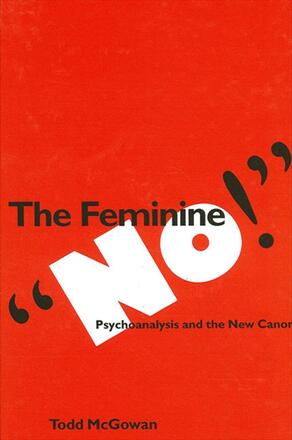
The Feminine "No!"
Psychoanalysis and the New Canon
Alternative formats available from:
Attempts to understand recent changes in the canon of American literature through the aid of psychoanalytic theory.
Description
The Feminine "No!" sheds new light on the recent culture wars and debates about changes to the literary canon. Todd McGowan argues that the dynamics of canon change, rather than being the isolated concern of literary critics, actually offer concrete insights into the source of social change. Through a deployment of psychoanalytic theory, McGowan conceives the rediscovery and subsequent canonization of previously forgotten literary works as recoveries of past traumas. As such, these rediscoveries call into question and disrupt not only the canon itself, but also the mechanisms of ideology, precisely because trauma is shown to be the key to radical social change. The book focuses on four of the most prominent rediscoveries in the canon of American literature: Charlotte Perkins Gilman's "The Yellow Wall-paper," Kate Chopin's The Awakening, Charles Chesnutt's The Marrow of Tradition, and Zora Neale Hurston's Their Eyes Were Watching God.
Todd McGowan is Assistant Professor of English at Southwest Texas State University.
Reviews
"Americanists who have felt dissatisfied with the limits of the canonicity debate will be happy to find this work. Those interested in the individual artists will also find the readings quite interesting in themselves, but the tie-in to recent psychoanalytic theory will also excite interest. The book will be helpful in African American and women's studies programs that have been warned off of psychoanalytic approaches on the basis of a bad experience with psychoanalytic applications that failed—this 'new' Lacanian one does not fail—to make space for the other subjects (feminine, racial, etc.)." — Juliet Flower MacCannell, author of The Hysteric's Guide to the Future Female Subject
"Very interesting, intriguing, provocative—an outstanding contribution to the fields of the canon debate as well as literary and cultural studies. By opening up the gap of the canonical unconscious, the author attempts to access the multiple voices which have been silenced and repressed by the so-called canonized tradition. Appropriating Lacan and Zðizûek in terms of the ethics of psychoanalysis, the author looks at the canon wars from a fresh intellectual perspective." — Youngmin Kim, Dongguk University, Korea